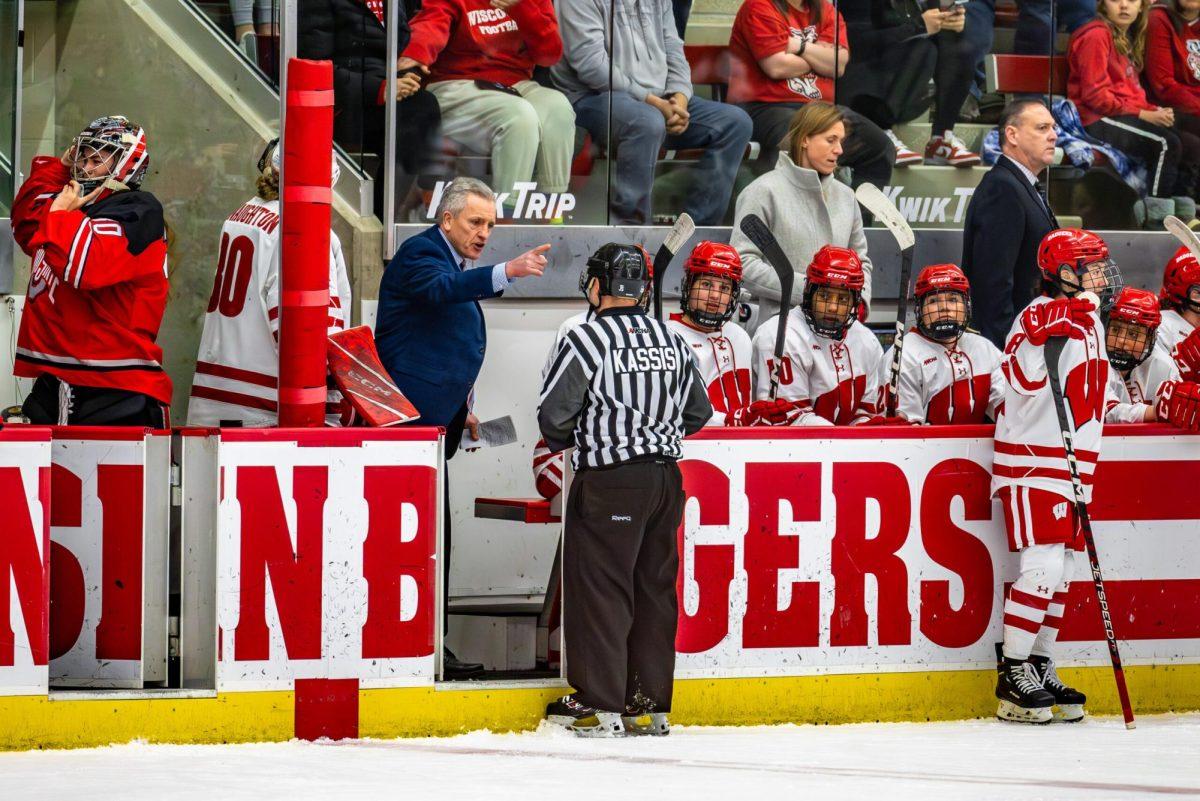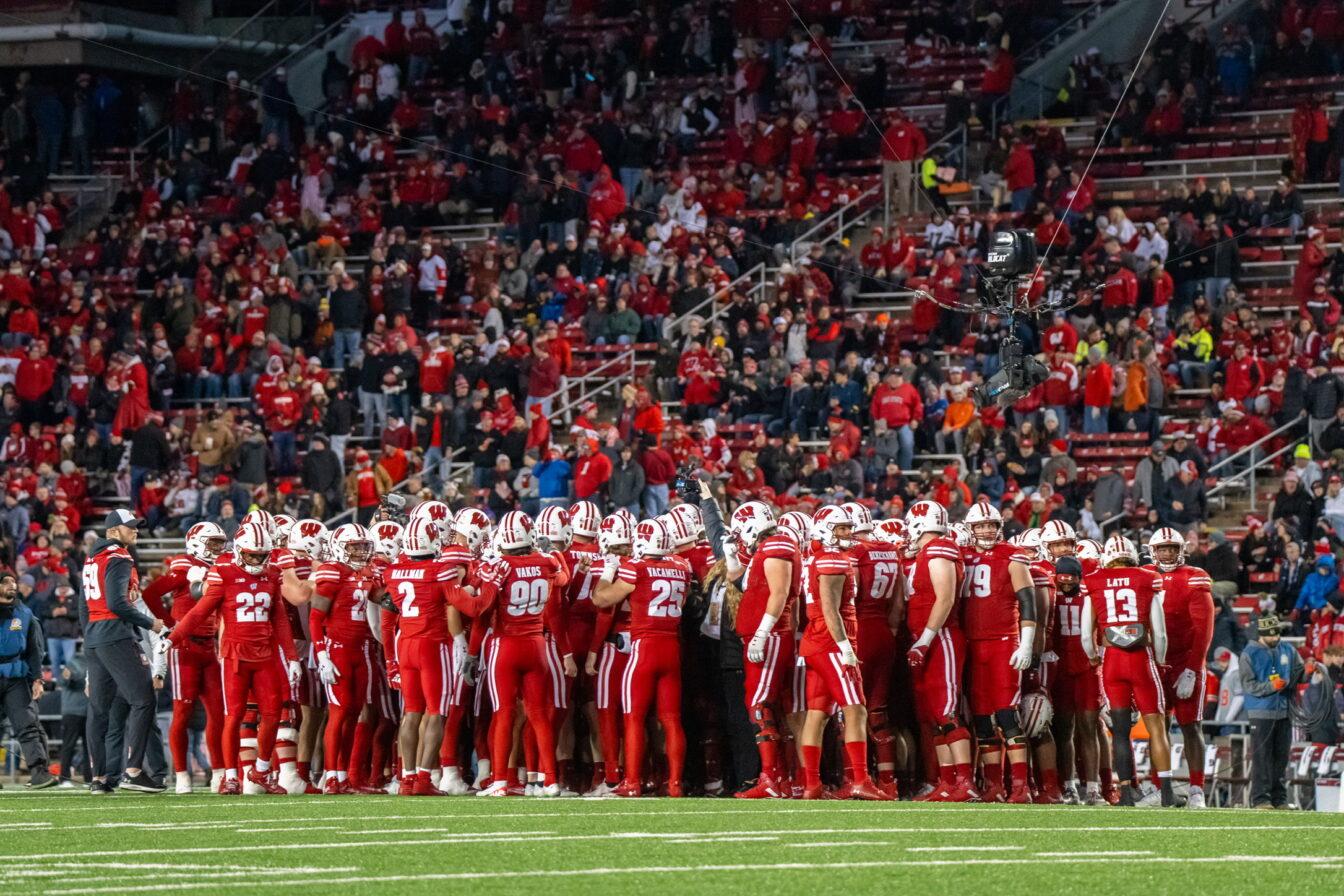Regardless of what happens when the Badgers take on Michigan this Saturday, Wisconsin fans should be looking forward to seeing Michigan suffer in the future, and this columnist won’t be sympathizing with them.
Yes, the football team will likely continue to be a power in the league; the Badgers are not that lucky.
Instead, it is the basketball program, currently emerging from rebuilding years, that will likely find the number of scholarships the program is allowed reduced in the near future.
If they do not, then the NCAA is providing the Wolverines with a double standard, because other Big Ten schools have suffered over lesser offenses recently.
Remember back when Michigan actually had a good basketball team? You know, the Fab Five and Chris Webber calling timeouts the team didn’t have? As it turns out, Michigan boosters were paying some players large amounts of money before and during their careers at Michigan.
Last week the university punished its basketball program after a federal investigation revealed former booster Ed Martin had given a total of $616,000 to Chris Webber, Maurice Taylor, Robert Traylor and Louis Bullock. The only one that continues to deny the accusations is Webber, but that is another matter.
This is a very serious situation for the Michigan program; after all, $616,000 dollars is not exactly pocket change or food money, and it will certainly get you more than a few pairs of discounted shoes.
Michigan announced it would take down any banners from the 1992 and 1993 Final Four appearances. The team will also suffer through having to forfeit 112 regular season and tournament games.
Jeez, sounds painful … yes that’s sarcasm. Forfeiting games you have already won. Sounds like taking empty bottles back to the liquor store and asking for a full refund. You still have the bottles, but giving them back doesn’t give back the experience of drinking them, or winning all the games in this case.
Michigan certainly enjoyed those victories. Coaches made big money, and boosters gave big money to make facilities better for the program. All the while, other teams competing fairly weren’t getting to the Final Four. Michigan basketball was built on those Final Four appearances, and they were at least partially paid for with dirty money.
Now the program is attempting to show everyone that it is policing itself by giving itself a kiddy slap on the wrist.
The good news is that no one can really be expecting Michigan to get off as scot-free as those unlovable Wolverines are planning. Take a look at past events. Precedence has been set.
Minnesota is just now regaining its previous form after having its basketball program decimated by an academic scandal. While the situation was not entirely similar, the NCAA dealt harshly with the Gophers, despite a self-imposed penalty that was much stronger than anything Michigan suggested.
Minnesota suggested it be stripped of seven scholarships over a four-year period, have recruiting trips reduced, evaluation periods shortened, take down banners and pay back money from any years it used ineligible athletes.
Scholarships are the only true way that programs can be injured. To affect a coach’s ability to recruit is to essentially make the program noncompetitive. Minnesota recognized this and did a good job of self-punishment.
The NCAA still did not think it was enough. When it made its ruling it increased the number of lost scholarships to eight as well as further reducing recruiting visits and coaching contacts allowed, effectively crippling the Gopher basketball program. It is only now beginning to recover in the fourth year after sanctions.
The Minnesota case dealt with players that were ineligible because of academic misconduct — a serious matter, but perhaps not the best parallel to the Michigan case, which appears to only involve massive amounts of money.
Yet there has been another recent example of how the NCAA will likely deal with Michigan.
Yes, Shoe Box rears its ugly head again. When the Shoe Box scandal broke before the 2000 football season, Wisconsin had attempted to avoid losing scholarships after athletes from various sports received discounted shoes.
The NCAA said, “not so fast,” and then stripped the football program of five scholarships over a two-year period as well as reducing the men’s basketball scholarships by one. These penalties were also in addition to the NCAA suspensions of 26 football and basketball players. At the time of the suspensions, Wisconsin was coming off two Rose Bowl victories and was ranked No. 4 in the nation.
Numerically, the Wisconsin football program has struggled and is still struggling to overcome the sanctions the NCAA handed down.
If UW deserved that for students getting 25 percent discounts on shoes, then what kind of punishment does Michigan really deserve? Certainly more than a one-year ban on postseason play. To let that penalty stand would be a joke.
Not to take away from the seriousness of past Wisconsin crimes, but a Michigan booster paid over $600,000 to players. Wisconsin players got shoes and sweat pants. Michigan players got enough money to buy cars. UW saved enough money to buy dinner.
Can there even be a doubt about whether Michigan should be on probation and suffer through the same problems Minnesota and Wisconsin were forced to go through?
There should be no question, and if Michigan is not heavily punished then an incredible injustice has been done to the Big Ten, college sports and the NCAA.














